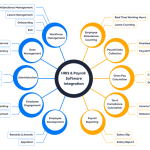In today’s fast-paced world, effective calendaring, or scheduling, has become a critical skill for managing time, reducing stress, and boosting productivity. Whether you’re balancing work, personal commitments, or educational pursuits, learning how to make the most of your calendar can help you stay on top of your responsibilities.
What Is Calendaring?
Calendaring is the act of using a calendar system, whether physical or digital, to track events, tasks, meetings, and deadlines. It enables individuals to allocate specific times for various activities, ensuring they stay on schedule and meet their goals. The process often involves prioritizing tasks, setting reminders, and blocking off uninterrupted time for focused work.
Benefits of Calendaring
- Increases Productivity: Scheduling helps people focus on high-priority tasks without getting sidetracked by less important ones.
- Reduces Stress: When everything is mapped out, there’s less worry about missing deadlines or double-booking commitments.
- Improves Work-Life Balance: A well-maintained calendar can ensure time is dedicated to both work and personal activities, promoting a healthier work-life balance.
- Enhances Accountability: Keeping a record of tasks and deadlines encourages follow-through and fosters a sense of responsibility.
Key Strategies for Effective Calendaring
- Time Blocking: Allocate blocks of time in your calendar for specific activities. For instance, you could dedicate mornings to high-focus tasks and afternoons to meetings or collaborative work. Time blocking helps create a structure that minimizes interruptions.
- Prioritization: Rank your tasks by urgency and importance. This method, often called the Eisenhower Matrix, helps you decide which tasks should be tackled first, delegated, or scheduled for later.
- Use Color-Coding: Many calendar apps allow you to color-code events or tasks. Assign colors to specific types of activities, such as work, family, or exercise. This visual organization method makes it easier to assess your daily or weekly schedule at a glance.
- Set Buffer Times: Avoid overloading your schedule by leaving small gaps between events or tasks. These buffer times can prevent one activity from spilling over into another and allow for a mental reset between commitments.
- Recurring Events: For regular tasks, like weekly meetings or exercise sessions, set recurring events in your calendar. This saves time on scheduling and ensures these activities have a dedicated slot each week.
- Sync Across Devices: For digital calendars, ensure they are synced across all your devices. This allows you to access and update your calendar whether you’re at work, home, or on the go.
Tools for Calendaring
Modern calendaring has been revolutionized by digital tools, which offer features like reminders, collaboration, and even AI-powered scheduling. Some popular tools include:
- Google Calendar: A versatile, free tool that integrates with various apps and is suitable for both personal and professional use.
- Microsoft Outlook Calendar: Ideal for corporate environments, this calendar is great for team scheduling and integrates seamlessly with other Microsoft Office tools.
- Apple Calendar: Best for Apple device users, this app offers a user-friendly interface with reliable syncing across Apple products.
- Trello and Asana: Project management tools that also have calendaring functions, making it easier to align tasks with deadlines.
Challenges of Calendaring
- Over-scheduling: Packing too many tasks into a day can lead to burnout and decreased productivity. Leave room for flexibility.
- Distractions: A common pitfall is filling the calendar with meetings or unnecessary events that detract from focused work.
- Underestimating Task Duration: It’s easy to misjudge how long tasks will take, which can lead to a domino effect of delays. Be realistic and build in extra time where possible.
Conclusion
Calendaring is more than just marking dates—it’s a skill that can significantly impact how well you manage time, handle stress, and maintain a balanced lifestyle. With the right approach, effective calendaring can streamline your day, ensure accountability, and help you make steady progress toward your goals.











